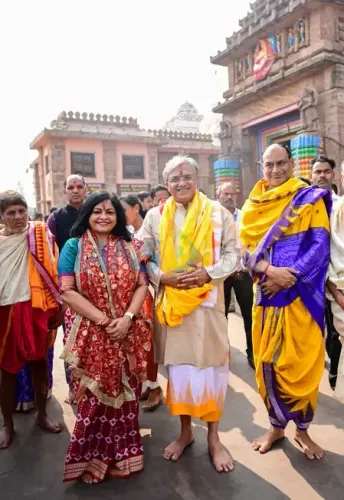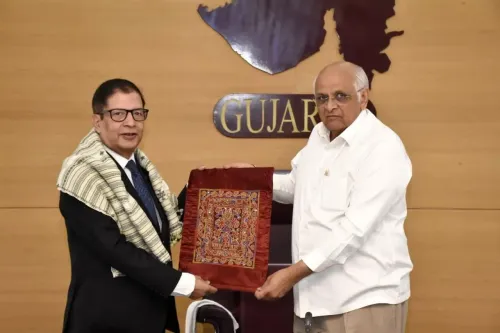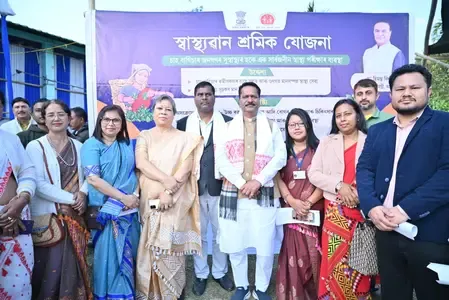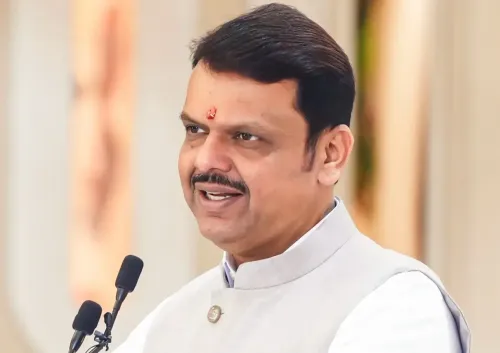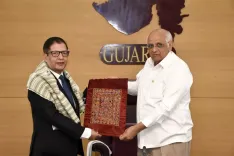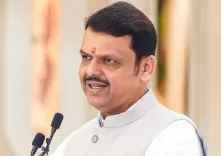How Will We Collaborate to Enhance Cotton Quality? - Shivraj Singh Chouhan
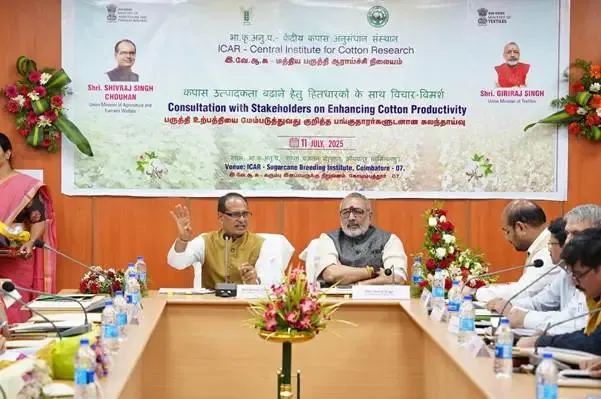
Synopsis
Key Takeaways
- Importance of High-Quality Cotton: Essential for the textile industry.
- Modern Technologies: Critical for improving productivity.
- Farmer Welfare: A priority under PM Modi's leadership.
- Balancing Interests: Necessary between farmers and the textile industry.
- Future Strategies: Influenced by farmers' demands and challenges.
New Delhi, July 11 (NationPress) The Union Minister for Agriculture and Farmers’ Welfare, Shivraj Singh Chouhan, presided over a pivotal meeting on Friday aimed at enhancing cotton productivity at the ICAR–Sugarcane Breeding Institute located in Coimbatore, Tamil Nadu.
The gathering involved comprehensive discussions regarding the history of cotton, the prevailing conditions, challenges, and future plans to elevate cotton productivity in India. Union Minister of Textiles Giriraj Singh, Haryana's Agriculture Minister Shyam Singh Rana, Maharashtra's Agriculture Minister Manikrao Kokate, Vice Chancellors from various agricultural universities, ICAR Director General Dr. ML Jat, officials, stakeholders, scientists, and farmers were all in attendance.
Prior to the meeting, the Union Agriculture Minister toured cotton fields, engaged with farmers, and addressed their issues and concerns. The formal meeting commenced with Chouhan’s address, where he highlighted that the event was taking place on the sacred grounds of Tamil Nadu, one of India's most ancient regions, with the Tamil language boasting a history of over 5,000 years.
He pointed out that a new cotton revolution is emerging from the soil of Tamil Nadu, emphasizing that the meeting transcended mere formality.
Chouhan remarked that clothing is the second most essential need for individuals after food. “Just as one cannot live without food, it is equally unfeasible to exist without clothing. Clothes are derived from cotton, which is cultivated by our farmers. Agriculture forms the backbone of the Indian economy, and farmers represent its spirit. Under Prime Minister Narendra Modi's leadership, the government is wholly dedicated to farmers’ welfare,” he stated.
However, the Minister recognized the hurdles in cotton production, as India's output lags behind that of other nations. The once-promising BT cotton variety is now encountering threats from diseases, leading to reduced productivity.
He asserted that India must take significant measures—similar to those of other nations—to enhance cotton productivity through modern technologies and by developing virus-resistant, high-yielding seeds. He stressed the necessity for timely distribution of these improved seeds to farmers and encouraged scientists to approach this task with utmost diligence.
The Union Minister further noted that the issues and demands raised by farmers from different states would influence future strategies. To produce quality fabric, high-quality cotton is crucial, and attaining this is a national aspiration. Under Prime Minister Modi's guidance, India is progressing towards glory, prosperity, and strength. “In a ‘Viksit Bharat’, we shouldn’t rely on foreign imports for cotton. Meeting our nation’s cotton requirements with domestic, high-quality production is both a challenge and a target—one that we must achieve collectively,” Chouhan stated.
He also acknowledged that while the textile industry often calls for the removal of import duties on cheap foreign cotton, farmers argue that this adversely affects local cotton prices. Thus, the government must strike a balance between the interests of both farmers and the industry.
Reflecting on his ‘Viksit Krishi Sankalp Abhiyan’, Chouhan recalled a previous significant meeting on soybeans in Indore, Madhya Pradesh, noting that Friday’s detailed meeting in Coimbatore on cotton continues that same consultative effort, focusing on crop-wise and state-wise strategies for agricultural advancement.


